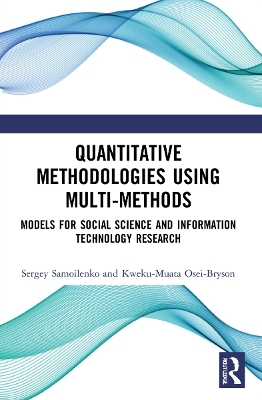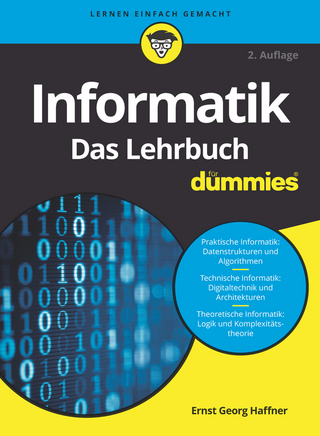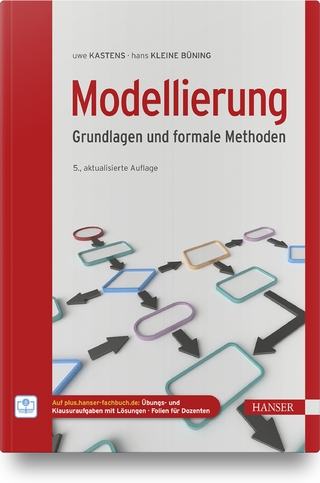
Quantitative Methodologies using Multi-Methods
Routledge (Verlag)
978-1-032-04697-6 (ISBN)
Quantitative Methodologies using Multi-Methods is a multifaceted book written to help researchers. It is a user-friendly introduction to the popular methods of data mining and data analysis. The book avoids getting involved into details that are more suitable for more advanced users; it is written for readers who have, at most, a surface-level knowledge of the methods presented in the book. The book also serves as an introductory guide to the subject of complementarity of the tools and techniques of data analysis. It shows how methods could be used in synergy to offer insights into the issues that could not be dissected by any single method alone.
This text can also be used as a set of templates, where, given a set of research questions, the investigator could identify a set of methodological modules for answering the research questions of interest. This is not entirely unlike the relationship between the analysis and design phases of the systems development life cycle—where the What of the analysis phase has to be translated into the How of the design phase. The book can guide the identification of modules (the How) that are suitable for answering research questions (the What). It can aid in transitioning a conceptual domain of the research questions into a scaffolding of data analytic and data mining methods.
The book is also a guide to exploring what data under investigation holds. For example, an investigator may use the methodological modules presented in this book to generate a set of preliminary questions which, after a careful consideration and a requisite culling, could be formulated into a set of questions consistent within a selected theory or a framework. Finally, the book can be used as a generator of new research questions. Applying every method in each of the book’s modules opens a new dimension ripe with follow-up questions such as, Why is this so? The answers to this question may provide new insight and lead to the development of a new theory.
Sergey Samoilenko is an associate professor and the Chair of the Department of Computer Science and Computer Information Systems at Averett University, in Danville, Virginia. Sergey’s current research interests include IT and productivity, data mining, and IS development. He holds his PhD and MS in information systems from Virginia Commonwealth University. He has published in the European Journal of Operational Research, Journal of Global Information Technology Management, International Journal of Production Economics, Expert Systems with Applications, and Information Systems Frontiers, among other journals, as well as in numerous conference proceedings. Kweku-Muata Osei-Bryson is professor of Information Systems at Virginia Commonwealth University. Previously he was professor of information systems and decision analysis in the School of Business at Howard University, Washington, DC, USA. He has also worked as an information systems practitioner in both industry and government. His research areas include: Data Mining, Decision Support Systems, Knowledge Management, IS Security, e-Commerce, IT for Development, Database Management, IS Outsourcing, Multi-Criteria Decision Making. He has published in various leading journals including: Decision Support Systems, Information Systems Journal, Expert Systems with Applications, European Journal of Information Systems, Information Systems Frontiers, Knowledge Management Research & Practice, Information Sciences, Information & Management, Journal of the Association for Information Systems, Journal of Information Technology for Development, Journal of Database Management, Computers & Operations Research, Journal of the Operational Research Society, & the European Journal of Operational Research.
Section I: Development of the Methodological Modules. 1. Pre Requisite General Questions. 2. Components of Multi-Method Methodologies. 3. Framework for Methodological Modules. Section II: Description of the Methodological Modules. 4. A1: Homogeneous Sample - DEA and DTI. 5. A2: Homogeneous Sample - DEA and ARM. 6. B1: Heterogeneous Sample (Groupings Are Given) DTI and ARM. 7. B2: Heterogeneous Sample (Groupings Are Given) - DTI and MR. 8. B3: Heterogeneous Sample (Groupings Are Given) - DTI, DEA, and ARM. 9. B4: Heterogeneous Sample (Groupings Are Given) - DTI, DEA, and NN. 10. C1: Heterogeneous Sample (Groupings Are Not Known) CA and DTI. 11. C2: Heterogeneous Sample (Groupings Are Not Known) - CA and ARM. C3: Heterogeneous Sample (Groupings Are Not Known) - CA, DTI, and MR. 13: C4: Heterogeneous Sample (Groupngs Are Not Known) - CA, DTI, and ARM. 14. C5: Heterogeneous Sample (Groupings Are Not Known) - CA and DEA. 15. C6: Heterogeneous Sample (Groupings Are Not Known) - CA, DEA, and ARM. 16. C7: Heterogeneous Sample (Groupings Are Not Known) - CEA, DTI, and DEA. 17. C8: Heterogeneous Sample: Groupings Are Not Known) - CA, DTI, DEA, and NN. Section III: Methodological Modules - Examples of their Application. 18. A Hybrid DEA/DM-based DSS for Productivity-Driven Environments. 19. Determining Sources of Relative Inefficiency in Heterogeneous Samples. 20.Exploring Context Specific Micro-Economic Impacts of ITC Capabilities. 21. A Methodology for Identifying Sources of Disparities in the Socio-econimic Outcomes of ITC Capabilities in SSA's. 22. Discovering Common Casual Structures that Describe Context-Diverse Heterogeneous Groups. 23. An Empirical Investigation of ITC Capabilities and the Cost of Business Start-up Procedures in Sub-Saharan African Economies. 24. Exploring the Socio-Economic Impacts of ITC-Enabled Public Value in Sub-Saharan Africa. 25. Contributing Factors to Information Technology Investment Utilization in Transition Economies. 26. Increasing the Discriminatory Power of DEA in the Presence of the Sample Heterogeneity with Cluster Analysis and Decision Trees. 27. An Exploration of the Intrinsic Negative Socio-economic Implications of ICT Interventions. Section IV: Appendix X. Appendix X1: Modls of Economic Growth. Appendix X2: A Model of the Socio-economic Impact of ICT.
| Erscheinungsdatum | 28.09.2023 |
|---|---|
| Zusatzinfo | 30 Line drawings, black and white; 30 Illustrations, black and white |
| Verlagsort | London |
| Sprache | englisch |
| Maße | 156 x 234 mm |
| Gewicht | 453 g |
| Themenwelt | Mathematik / Informatik ► Informatik ► Theorie / Studium |
| Sozialwissenschaften ► Ethnologie | |
| Sozialwissenschaften ► Soziologie | |
| ISBN-10 | 1-032-04697-X / 103204697X |
| ISBN-13 | 978-1-032-04697-6 / 9781032046976 |
| Zustand | Neuware |
| Informationen gemäß Produktsicherheitsverordnung (GPSR) | |
| Haben Sie eine Frage zum Produkt? |
aus dem Bereich


